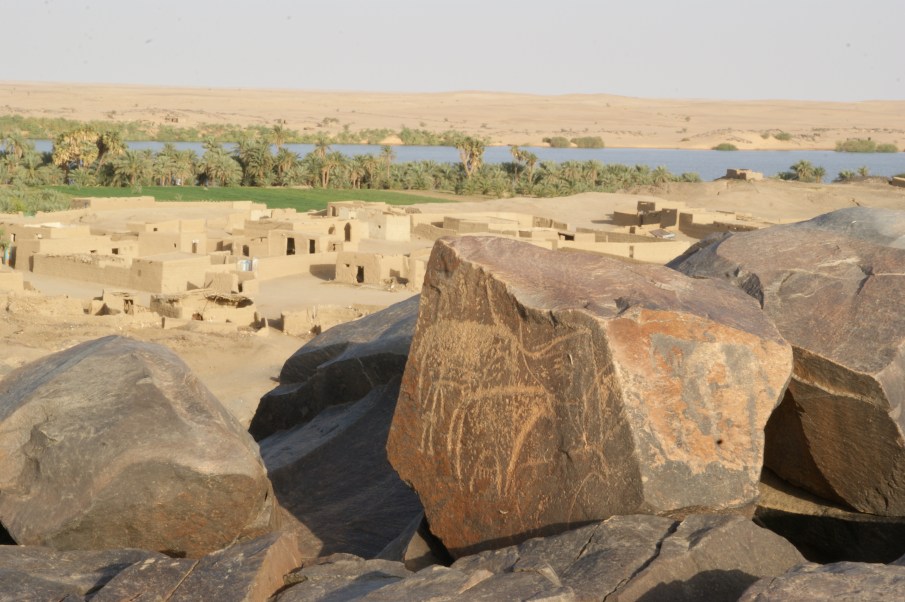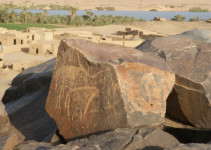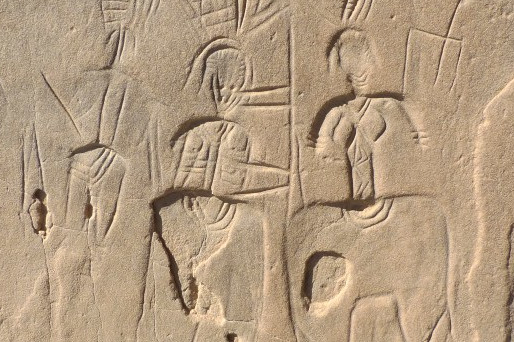Exhibitions
Departments

Exhibition curator: Dr Paweł Polkowski
"Rock Art of North Africa" is a permanent exhibition devoted to rock engravings and paintings of the Eastern Sahara. The Archaeological Museum in Poznań has carried out research on rock art in three countries – Algeria, Egypt and the Sudan. The investigations were initiated by the late Prof. Lech Krzyżaniak, for many years director of the Museum.
Lech Krzyżaniak started his rock art research from the site of Tassili n'Ajjer in Algeria, which boasts one of the largest assemblages of rock paintings in Africa and the world. The oldest images date back to probably over 10 000 years, while the youngest were made in the modern era. The work carried out in the Sefar massif allowed for documenting many amazing paintings, including the famous Great God, whose photographs are on display in the exhibition.
The research in the Dakhleh Oasis in Egypt, initiated by Lech Krzyżaniak in the mid-1980s, has been continued to this day. The Poznań mission works as part of the Dakhleh Oasis Project – an international and interdisciplinary research team. The sites with rock art discovered by the Polish researchers are rich in prehistoric engravings as well as Dynastic and later Arabic images. Particularly interesting are the Neolithic representations of women, unique in the Saharan art, possibly connected with fertility, as many of them seem to be shown as pregnant.
The third area of rock art study is the region of the 4th Nile Cataract in the Sudan. The research conducted already in the 21st century made it possible to document numerous sites with petroglyphs and to acquire several boulders with engravings, which became an additional motivation for us to create this exhibition. The artefacts, handed over to Polish researchers as a token of gratitude for their participation in the rescue research in the area of the 4th Cataract, feature mainly scenes related to pastoral activities. They are estimated to date back to the 4th and 3rd millennia BC.
Thanks to the cooperation of several scholarly institutions engaged in the study of eastern Saharan rock art, we can also present objects discovered at other sites, in particular in the Nile valley. Apart from the artefacts, the visitors can enjoy multimedia installations with their contents dedicated to both adults and children. For the youngest exploreres, we prepared a boulder covered with engravings of animals. They can copy the images using carbon paper and graphite, thus having the opportunity to experience the work of rock art researchers.
Nasza strona internetowa używa plików cookies (tzw. ciasteczka) w celach statystycznych, reklamowych oraz funkcjonalnych. Dzięki nim możemy indywidualnie dostosować stronę do twoich potrzeb. Każdy może zaakceptować pliki cookies albo ma możliwość wyłączenia ich w przeglądarce, dzięki czemu nie będą zbierane żadne informacje. Dowiedz się więcej jak je wyłączyć. OK, Rozumiem



